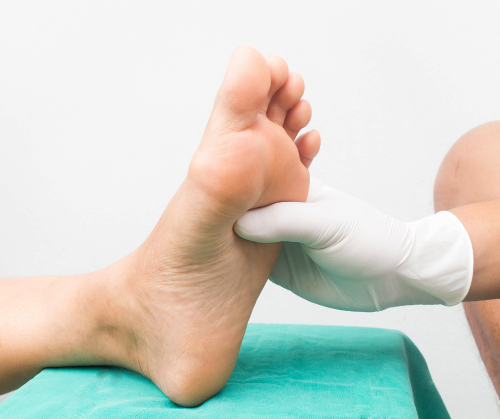People with diabetes are prone to many foot problems. When you have diabetes, being aware of how foot problems can arise from disturbances in the skin, nails, nerves, bones, muscles, and blood vessels is essential. Furthermore, in diabetics, small foot problems can turn into serious complications. Let’s look at what you need to know to manage diabetes for healthy feet.
Risk of Diabetes
Both nerve damage (neuropathy) and poor blood circulation can cause loss of feeling in your feet. This may take away your ability to feel pain and discomfort so that it’s difficult to detect an injury. Poor circulation in your feet also reduces your ability to heal, making it hard for even a tiny cut to resist infection.
Having diabetes puts you at risk for developing a wide range of foot problems:
- Infections and ulcers that don’t heal.Because of poor circulation in the feet, cuts or blisters can easily turn into ulcers that become infected and won’t heal.
- Corns and calluses.When neuropathy is present, you can’t tell if your shoes are causing pressure and producing corns or calluses.
- Dry, cracked skin.Poor circulation can make your skin dry and can result in cracks that may become sores.
- Hammertoes and bunions
What You Can Do
Luckily, there are a variety of things you can do to decrease the risk of developing serious complications from diabetes. You play a vital role in reducing complications. Here are some tips:
- Inspect your feet daily.
- Pay attention to the color of your feet and toes. If they turn red, pink, or purplish, poor circulation may be a problem.
- Don’t ignore foot or leg pain.
- Keep floors free of sharp objects. With reduced sensitivity, you may not notice any inflicted wounds or cuts on your feet.
- Don’t go barefoot. Wear shoes, indoors and outdoors.
If you have any issues with foot health and mobility, contact Step by Step Family Foot Care in Parsippany, New Jersey. Our board-certified podiatrist, Dr. Debra B. Manheim, offers treatment for foot and ankle disorders, biomechanical analysis, and functional orthotic fabrication. For more information and answers to your questions, and to schedule an appointment, contact us at (973) 917-3785.



